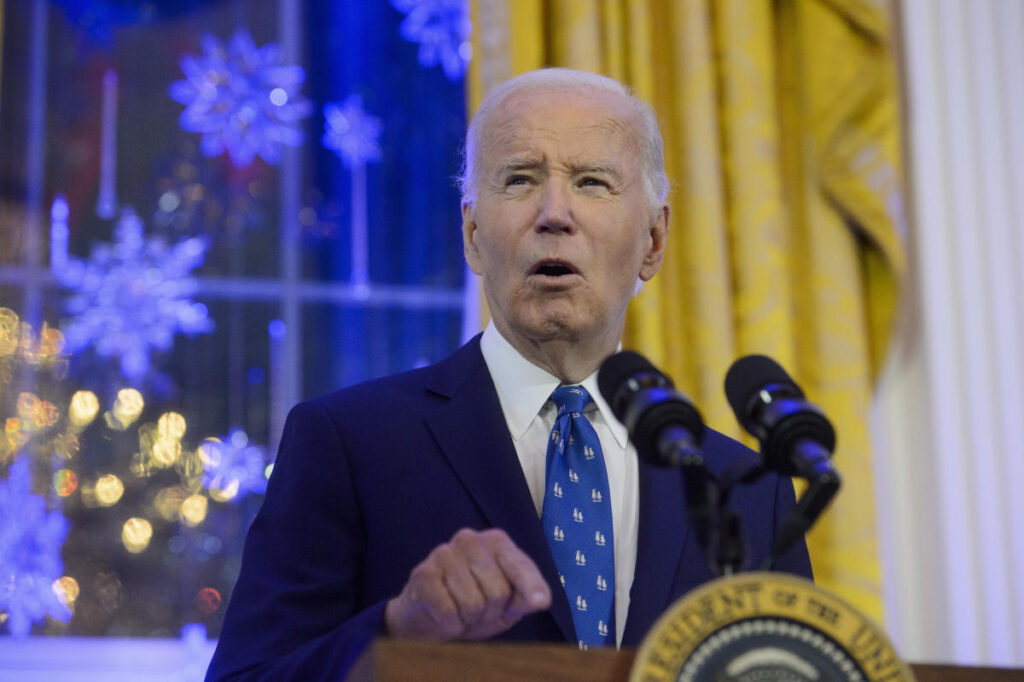On Monday, President Biden announced that he had commuted the sentences of 37 out of the 40 inmates currently on federal death row, converting their sentences to life imprisonment without the possibility of parole. This significant decision aligns with the moratorium on federal executions that Biden’s administration has implemented, which applies to all cases except those involving terrorism and hate-motivated mass murder. In his statement, Biden emphasized his commitment to ending capital punishment at the federal level, reinforcing his stance as a critic of the death penalty. However, he did not commute the sentences of three infamous death row inmates whose crimes directly relate to terrorism and hate crimes: Dylann Roof, Dzhokhar Tsarnaev, and Robert Bowers.
Each of the three inmates whose sentences were not altered fits the criteria established by Biden’s administration concerning violent and targeted acts of extremism. Roof, a self-identified white supremacist, committed a racially motivated massacre in 2015 during a Bible study at the Emanuel African Methodist Episcopal Church in Charleston, South Carolina, killing nine Black Americans. Dzhokhar Tsarnaev, along with his brother Tamerlan, orchestrated the Boston Marathon bombing in 2013, which resulted in three deaths and over 260 injuries. Their motives were rooted in a radical ideology, and they claimed to act in retaliation for perceived injustices against Muslims due to U.S. military actions. Robert Bowers executed the deadliest attack on Jews in U.S. history in 2018 when he opened fire in the Tree of Life Synagogue in Pittsburgh, killing 11 individuals. Bowers’ actions were fueled by anti-Semitic beliefs.
Biden’s motivation for his decision to commute the sentences of the majority of federal death row inmates stems from his long-standing opposition to capital punishment, which he has openly espoused throughout his political career. In 2020, Biden’s campaign platform proposed the elimination of the death penalty at the federal level while also encouraging states to follow suit. The administration’s moratorium on federal executions, announced in 2021, was born from a desire to reevaluate the administration of capital punishment in the U.S. Biden’s personal experience as a public defender and his moral convictions have shaped his beliefs against the death penalty, which he has referred to as inconsistent with his values as a practicing Catholic.
The U.S. Conference of Catholic Bishops praised Biden’s decision, framing it as a significant step toward fostering a culture that prioritizes life and compassion. This decision also aligns with the ongoing conversations surrounding racial disparities in the application of the death penalty, as advocates argue that people of color, particularly Black Americans, face disproportionate sentencing in capital cases. Additionally, Biden’s statement hinted at the political context influencing his actions; he expressed determination not to allow a potential return of execution practices under a new administration, specifically referencing former President Donald Trump’s previous term, during which there was a substantial increase in federal executions.
Under Trump’s presidency, the federal government executed 13 individuals after a 17-year hiatus, making it the most prolific period for federal executions in recent history. Trump’s agenda included expanding the death penalty to encompass drug-related offenses, which Biden framed as a stark contrast to his own stance. While there are currently just three inmates remaining on federal death row, the lengthy processes involved in capital trials and appeals mean that any additional executions during a hypothetical second Trump term may not exceed those executed in his first term.
It’s vital to distinguish the nature of Biden’s commutations from pardons, which provide total forgiveness and restore full citizenship rights to individuals. Commutations merely reduce the severity of the punishment from death to life imprisonment without the possibility of parole, keeping the door open for the possibility of execution should circumstances change. By commuting the sentences of Roof, Tsarnaev, and Bowers, Biden has made a normative move against the use of capital punishment while still acknowledging the gravity of their crimes. Overall, Biden’s actions reflect his administration’s ethical commitment to reevaluate and ultimately seek a cessation of the death penalty in the federal justice system.

